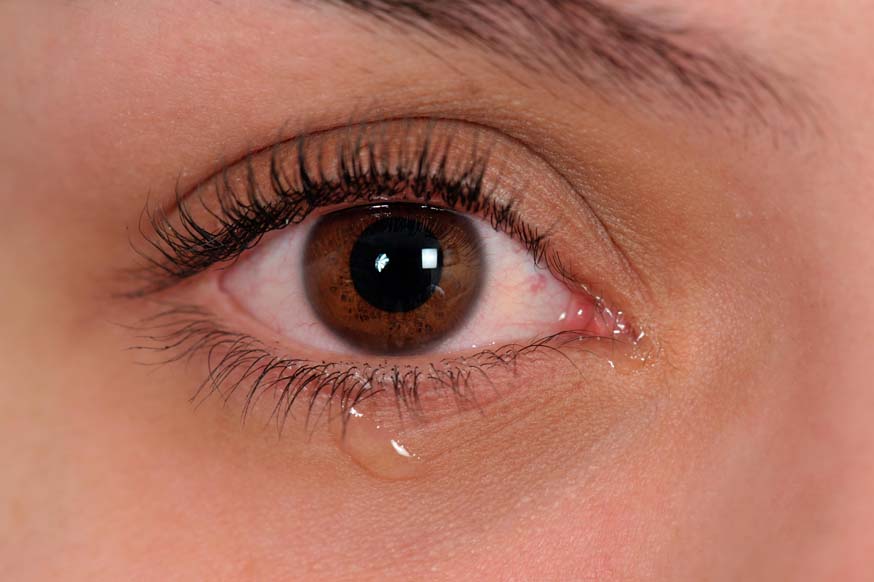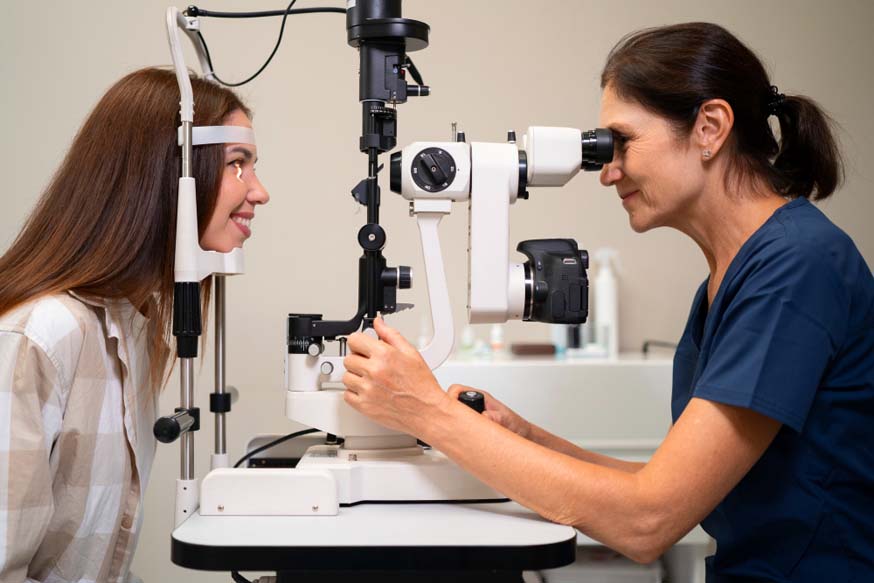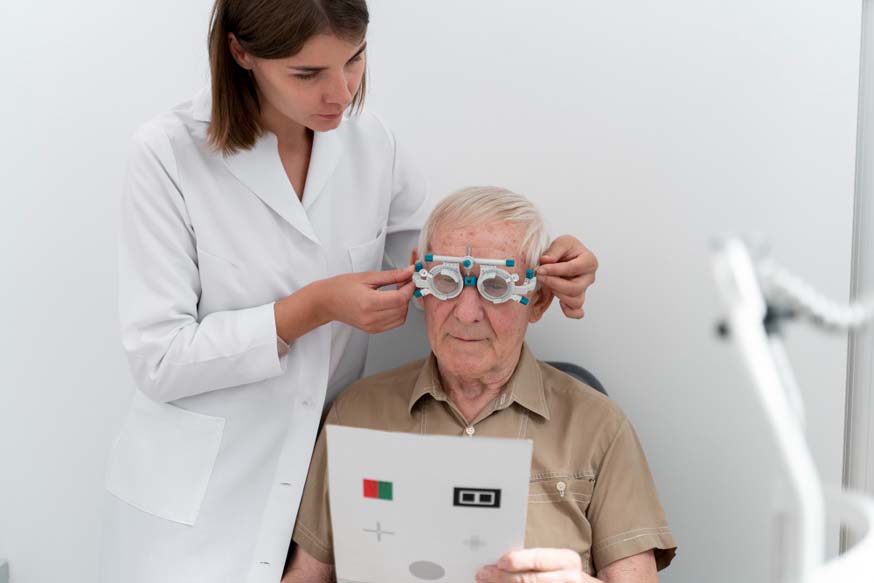Your vision is a precious gift. Protecting your eyesight means taking proactive steps and knowing when to seek professional care. An eye doctor’s primary focus is maintaining your eye health, ensuring you experience the best vision throughout your life.

It’s natural to have questions about your eye health and wonder, “When should I get my eyes checked?” Here are 10 crucial signs that indicate you should schedule an eye exam as soon as possible:
1. Blurry Vision

Blurry vision, whether sudden or gradual, is a top sign that something’s not quite right with your eyes. It could be a simple need for a new glasses or contact lens prescription. However, blurry vision can also signal more serious conditions like glaucoma, macular degeneration, cataracts, or diabetic eye disease. Don’t take risks – a comprehensive eye exam will pinpoint the cause and determine the best treatment.
2. Frequent Headaches

Occasional headaches are a part of life, but persistent or recurring headaches, especially those focused around your eyes, might be related to eyestrain. Prolonged digital device use, undiagnosed vision problems, or eye conditions like glaucoma can trigger these headaches. An eye exam can rule out any underlying eye issues contributing to your discomfort.
3. Seeing Double (Diplopia)

Double vision, where you perceive two images of a single object, can be alarming. Potential causes range from dry eyes or astigmatism to neurological problems or even tumors. Sudden or persistent double vision warrants prompt attention from your eye doctor to identify the root cause and recommend the proper course of action.
4. Trouble with Night Vision

Difficulty seeing in low-light conditions, particularly while driving at night, can be an early warning sign of declining vision. While some night vision changes occur naturally with age, it could also indicate developing cataracts, macular degeneration, or other eye health concerns. An eye exam will uncover the reason behind your diminished night vision.
5. Eye Pain

Pain in or around your eyes is always a red flag. Serious conditions like glaucoma or tumors can cause severe eye pain. Less severe, but still concerning, issues like eye infections, allergies, a foreign object, or corneal scratches can also cause pain. Never ignore eye pain – a prompt eye exam is crucial for diagnosis and relief.
6. Flashing Lights or Large Floaters

Floaters are those small specks or lines that drift across your vision. Occasional floaters are generally harmless, but a sudden increase in floaters or seeing flashes of light could signify a retinal tear or detachment – a medical emergency. Seek immediate eye care if you experience these symptoms.
7. Dry, Gritty, or Itchy Eyes

Persistent dryness, itchiness, or a gritty feeling in your eyes point towards dry eye syndrome. Causes include environmental factors, certain medications, and underlying health conditions. Over-the-counter drops offer temporary relief, but a comprehensive eye exam will identify the root of your dry eyes and provide a more effective treatment plan.
8. Watery Eyes

Surprisingly, excessive tearing can also stem from dry eye syndrome. Your eyes produce a surplus of tears to compensate for insufficient lubrication. Like other dry eye symptoms, a thorough eye exam is essential to address the underlying cause rather than just masking the watery eyes.
9. Eye Discomfort Using Digital Screens

Computer vision syndrome, also called digital eye strain, is increasingly prevalent due to our screen-reliant lifestyles. Prolonged screen time can lead to eye strain, dry eyes, and even accelerated nearsightedness (myopia) in children. If you experience persistent discomfort, your eye doctor can offer solutions and ergonomic adjustments.
10. Light Sensitivity (Photophobia)

While some light sensitivity is normal, excessive sensitivity could indicate infections, corneal issues, or underlying conditions like cataracts. An eye exam will shed light on the cause and guide you towards appropriate treatment.
Tips for Your Eye Exam
To maximize the value of your eye exam, follow these tips:
- Be Prepared: Have a list of any eye-related symptoms you experience, even if you consider them minor.
- Know Your History: Gather information about your family’s eye health history, as many conditions can be hereditary.
- Medication List: Bring a list of current medications and supplements, as some can affect your eyes.
- Bring Your Eyewear: If you wear glasses or contacts, bring them to your appointment.
- Ask Questions: Don’t hesitate to ask your eye doctor any questions. The more informed you are, the better you can advocate for your own eye health.

Conclusion
Regular eye exams are crucial but don’t wait for your next scheduled checkup if you experience any of these 10 signs. Prioritizing your eye health means seeking prompt attention when your vision changes. An eye doctor can accurately diagnose the problem and recommend the best path to protect your precious eyesight.



